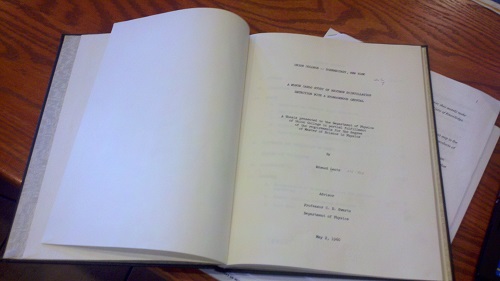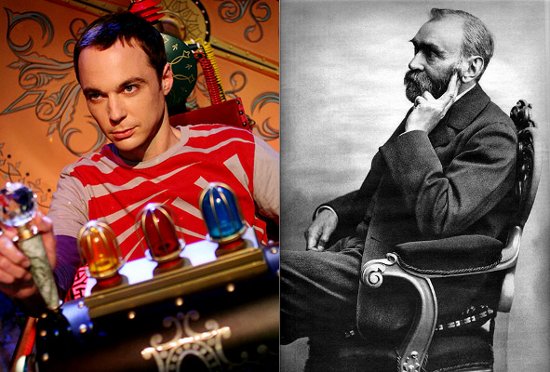There was a great big New York Times article on women in science this week, which prompted no end of discussion. (I also highly recommend Bee’s response at Backreaction.) It’s built around the personal story of the author, Eileen Pollack, a physics major at Yale who decided not to go to grad school, and her… Continue reading Men, Women, and Graduation Statistics
Month: October 2013
On Corrective Incentives
SteelyKid’s kindergarten teacher is big on incentives and prizes– there are a number of reward bags that get sent home with kids who excel in some particular area. I’m not entirely sure what’s in these, because SteelyKid hasn’t gotten any yet. This isn’t because she misbehaves– from all reports, she’s very good– but she’s in… Continue reading On Corrective Incentives
On Fear of Parental Perception
I almost killed the Pip last week. By accident, of course, but I do mean that literally. His day care was closed for the day, so I took him out to the store to avoid a freakout when Mommy left. I was heading into the store with him in one arm and a hot cup… Continue reading On Fear of Parental Perception
(Not-so-)Ancient History of Physics: Monte Carlo Simulation in 1960
We cleared a bunch of space in our deep storage area over the summer, and one of the things we found was a box full of old student theses from the 1950’s and 1960’s. The library already had copies of them, but I thought it was sort of cool to have a look into the… Continue reading (Not-so-)Ancient History of Physics: Monte Carlo Simulation in 1960
On Public Speaking Across Disciplines
We had a faculty meeting yesterday, at which one colleague suggested that in addition to our “Writing Across the Curriculum” requirement, we should have a “Speaking Across the Curriculum” requirement to teach students oral presentation skills. This provoked a bit of tittering about the possible acronym, but it’s not an obviously awful idea. The basic… Continue reading On Public Speaking Across Disciplines
Sheldon Cooper and Alfred Nobel
Last week, before we headed out for the weekend, I had a brief exchange with Ben Lillie on Twitter, prompted by the following set of tweets: OK, here's a thing. I'll often hear people complain that Hollywood gets science wrong because there's *1* scientist who does everything 1/3 — Ben Lillie (@BenLillie) September 27, 2013… Continue reading Sheldon Cooper and Alfred Nobel

